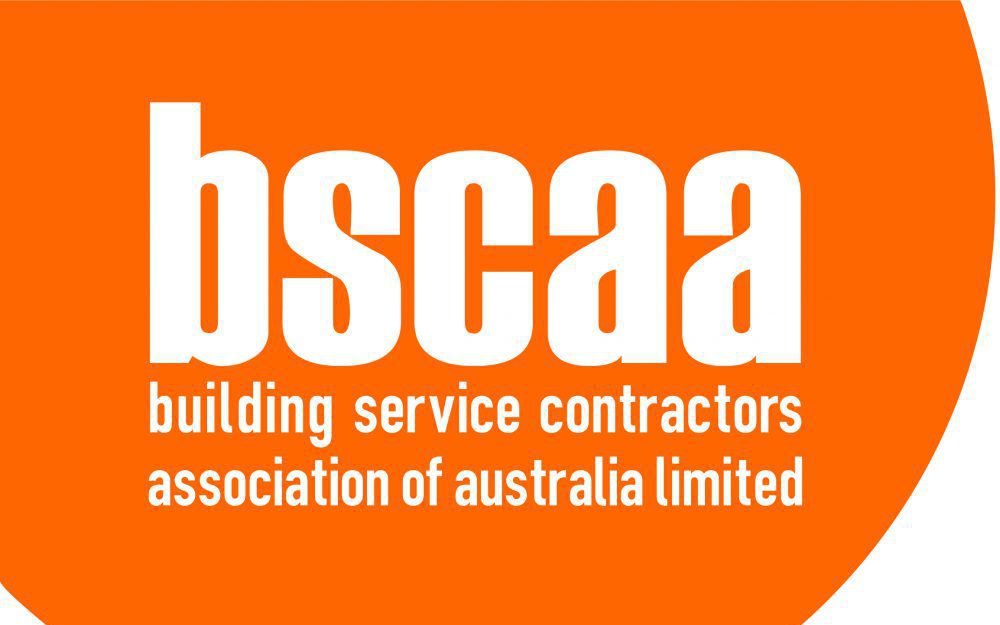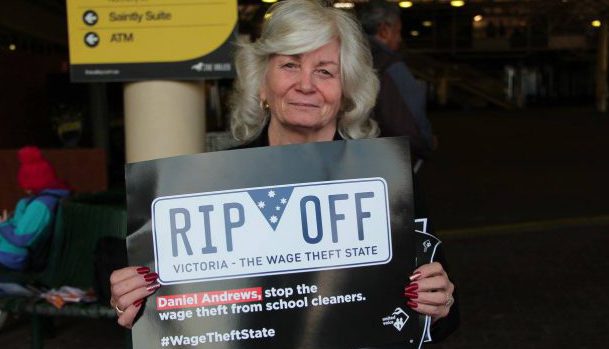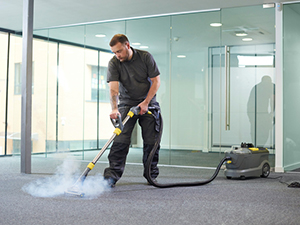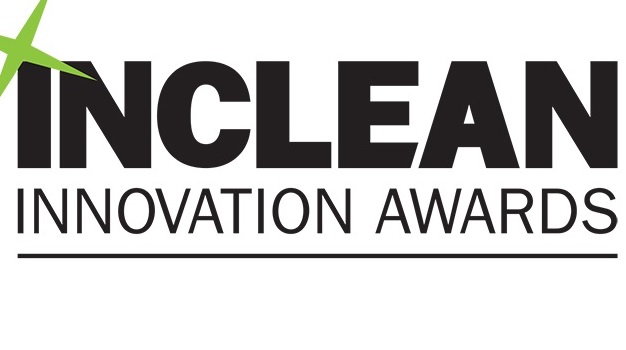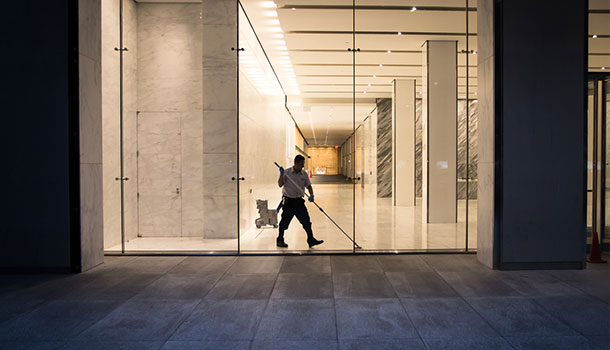
Lisa Macqueen, co-founder and director of Cleancorp, has revealed the major concerns leading organisations to ramp up the quality of their workplace cleaning to meet the new COVID-19 risk.
Cleancorp has been commissioned by Australian Government departments, consulates, embassies, multi-national businesses, schools, hospitals, strata companies and construction sites to provide its anti-viral cleaning services during the pandemic.
The company has received more than 1350 new inquiries for its anti-viral cleaning services since the start of the pandemic, with Macqueen expecting organisations to ramp up their cleaning from next month as employees begin to re-enter workplaces.
“June and July will be crucial months for many organisations, as a significant proportion of employees will begin to enter workplaces again, explains Macqueen, adding organisations want to be doing everything they can to minimise the risk of infection in their premises to maximise employee safety.
“A major component of organisational risk management is frequent and thorough anti-viral cleaning. Employers need to understand that old cleaning practices, such as merely wiping down surfaces and vacuuming floors, will be inadequate for keeping surfaces and touchpoints virus free.”
According to Macqueen, disinfection and sanitisation are now more important, with a particular focus on frequently touched surfaces, such as door handles, light switches, lift buttons, railings, desks, toilets, and microwaves.
“If organisations do not demonstrate they are providing a thoroughly clean and highly sanitised environment, they will struggle to win the confidence of their employees as they head back into their premises – and even the willingness of their employees to enter the workplace.”
Here, she outlines the top nine concerns by organisations in relation to the health and safety of their employees, customers, and visitors:
1. Open plan offices could fester viruses
A recent study has shown that workers in open plan workplaces have a 62 per cent higher incidence of sick leave than those in private or shared cellular offices.[1]
Some organisations are concerned their office layout of shared desks, hot desks, meeting rooms, kitchens, dining areas and breakout spaces may no longer be safe to use and occupy.
According to Macqueen,small, closed-in pods with soft furnishings – surfaces that need to be steam-cleaned, often at considerable expense – will no longer be viable, either.
“I believe COVID-19 could reverse the hot-desking trend and see organisations revert back to enclosed, single-person workstations to reduce risks of transmission.”
2. Cross-contamination between departments
Business decision-makers are also concerned about potential COVID-19 breakouts spreading across the organisation. Cleancorp uses colour-coded cleaning materials to ensure the same materials are not used between two different sites. For instance, red cloths are used on sanitary appliances, restroom floors, toilets, and urinals; yellow for other restroom surfaces, including sinks, door handles, walls, and towel and soap dispensers; green for general food preparatory and bar areas, and so on.
3. Risk of litigation
The Workplace Health & Safety (WHS) Act requires employers to provide and maintain a work environment that is without risk to the health and safety of their workers – this includes protection from the risk of exposure to COVID-19 (as far as reasonably practical).[2] Macqueen has found many employers are concerned about the risk of litigation should an employee become infected while at work – and what the WHS implications for them will be. For the same reasons, they are also worried about customers or visitors becoming infected while on their premises. She says employers have a duty to maintain the workplace and facilities, and one of the best ways to do this is by organising for it to be cleaned regularly and thoroughly.
4. Compliance with workplace standards
Beyond the WHS Act, many organisations have committed to additional safety standards, such as ISO 45001. Macqueen says some organisations have ramped up their cleaning because they need to be able to demonstrate to their auditors that they did everything they could to provide a safe environment for employees during this time.Macqueen suggests these businesses should seek cleaners whose services are ISO certified.
5. Negative publicity in the event of a confirmed case of COVID-19
Digital and social media platforms have led to divisive and disruptive blame games about the origin of coronavirus cluster outbreaks. What is clear, however, is the social and financial impact on an organisation that is linked to a cluster, such as the Ruby Princess, Cedar Meats, or smaller businesses. Macqueen says that, among several businesses that have sought Cleancorp’s services, there is a real fear that they will be forever ‘marked’ by a positive COVID-19 case in their workplace and will struggle to win back customers.
6. Lack of control over risks employees take in their own time
Organisations can regularly educate and update employees on new information relating to COVID-19, but how can they minimise the risk of infection on a Monday morning, if some employees were exposed on the weekend? Macqueen recommends businesses organise a precautionary after-work clean on Mondays, including sanitisation of high-traffic areas. Though time-consuming, Macqueen says these extra measures are what is needed to enable organisations to take an active role in preventing the spread of the virus.
7. The risk to vulnerable clients and visitors
Macqueen says she has seen an increase in car fleets requesting Cleancorp’s full disinfection precautionary clean because they are often working for charities or servicing vulnerable people in the community. Similarly, NDIS providers have asked for more frequent and substantial cleans due to concerns about their vulnerable communities. At the same time, there are instances of government departments requesting anti-viral cleans to demonstrate best practices to their stakeholders.
8. Parents’ lack of confidence in the safety of school grounds
Except for Victoria and Tasmania, public schools in NSW, Queensland, South Australia, WA, and the ACT have already begun a staggered return to face-to-face learning. For independent schools, the Federal Government has stated that it would withhold funding if they do not re-open their doors to students in term two, which has motivated many to begin already staging return dates. These schools – and particularly boarding schools (most of which have shifted to remote learning) – have asked Cleancorp for the highest level clean, mostly to reassure parents.
9. Demonstrating corporate social responsibility
Many large organisations simply want to show that they are not only doing their due diligence but are proactively risk mapping by asking for heavy-duty anti-viral cleans – even if their workplaces are unlikely to have been exposed to COVID-19. “The pandemic is a new ‘stress test’ for organisations actively involved in corporate social responsibility.”
[1] Pejtersen, Jan H, et al. “Sickness Absence Associated with Shared and Open-Plan Offices — a National Cross Sectional Questionnaire Survey.” Scandinavian Journal of Work, Environment & Health, vol. 37, no. 5, 2011, pp. 376–382. Accessed 12 May 2020: https://www.jstor.org/stable/pdf/23064898.pdf?seq=1#page_scan_tab_contents
[2] Safe Work Australia, ‘Duties under WHS laws’: https://www.safeworkaustralia.gov.au/covid-19-information-workplaces/industry-information/general-industry-information/duties-under-whs
Comment below to have your say on this story.
If you have a news story or tip-off, get in touch at info@3.106.117.80.
Sign up to INCLEAN’s newsletter.

